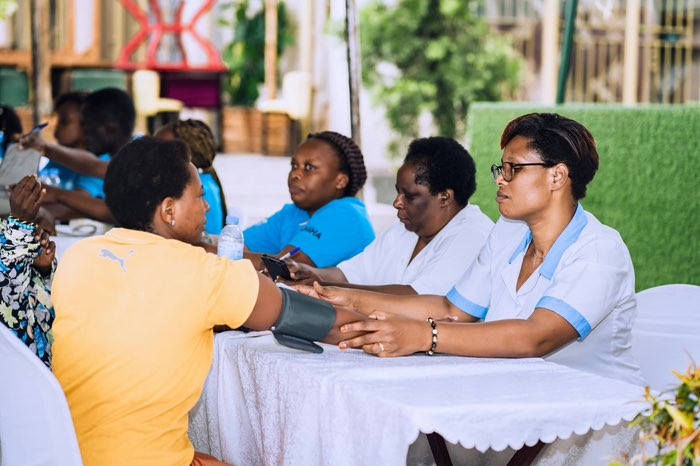
As non-communicable diseases (NCDs) such as diabetes continue to rise globally, Rwanda is taking bold steps to combat this growing public health challenge.
In alignment with World Diabetes Day, the country has launched a nationwide initiative aimed at raising awareness, improving early diagnosis, and promoting healthy lifestyles to curb the prevalence of diabetes and other NCDs.
A 2021 survey conducted by the Ministry of Health in collaboration with the World Health Organization revealed that 2.9% of Rwanda’s population—approximately 203,344 people—live with diabetes. Alarmingly, many remain undiagnosed, presenting a significant public health challenge.
To address this growing issue, Rwanda’s Ministry of Health, in partnership with key stakeholders, has launched a nationwide awareness campaign running from November 11 to 17, 2024.
Themed “Baho Neza Wirinda Diabete: Isuzumishe” (translated as “Live Well, Prevent Diabetes: Get Screened”), the campaign has three core objectives:
1. Raising awareness about diabetes and other NCDs.
2. Promoting early diagnosis and prevention efforts.
3. Engaging community leaders to support multi-sectoral initiatives aimed at combating NCDs.
Nationwide Activities for Awareness and Prevention
A central component of the campaign is offering free screenings for diabetes and other NCDs across the country. This initiative aims to promote early detection, which is vital for effective management and the prevention of complications.
During a workshop held in Kigali on November 15, 2024, Dr. François Uwinkindi, Division Manager for Non-Communicable Diseases at the Rwanda Biomedical Center (RBC), addressed the factors contributing to the rise in diabetes and other NCDs. These include:
. Excessive alcohol and tobacco use.
. Unhealthy diets high in sugar and salt but low in fruits and vegetables.
. Sedentary lifestyles, particularly among office workers.
. Practical Steps for Prevention
Dr. Uwinkindi emphasized that many NCDs are preventable through simple lifestyle changes, such as:
Adopting a balanced diet rich in fruits, vegetables, and whole grains while reducing sugar, salt, and processed foods.
Incorporating at least 30 minutes of physical activity daily, whether walking, cycling or even stretching during work hours.
Taking regular breaks to avoid prolonged sitting, especially in office settings.
The Importance of Early Detection
Early screening for diabetes is critical because the condition often develops silently, with no symptoms in its early stages. Identifying the disease early allows for timely intervention, reducing the risk of complications such as heart disease, kidney failure, and vision loss.
A Shared Responsibility
Addressing NCDs requires a collaborative approach involving healthcare providers, community leaders, and individuals. Rwanda’s awareness campaign highlights the importance of education, prevention, and early intervention in fostering a healthier population.
Through these collective efforts, Rwanda is not only raising awareness but also equipping its citizens with the tools and knowledge needed to lead healthier lives and reduce the burden of non-communicable diseases. (End)
